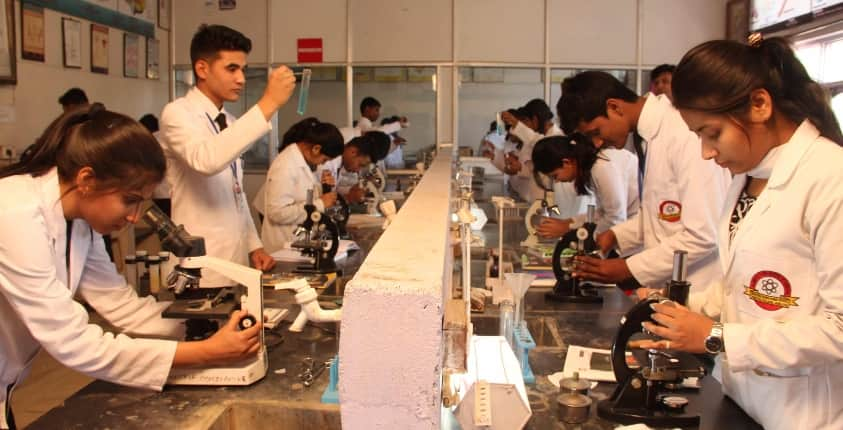NMC: 75% attendance in theory must for MBBS supplementary exams
Sanjay | September 13, 2023 | 05:55 PM IST | 4 mins read
The NMC answered FAQs on the medical education regulations governing medical colleges and the MBBS programme.

NEW DELHI: At least 75% attendance in theory and 80% in practical or clinical training is mandatory for MBBS students to appear in supplementary examination following the regular annual examination, said the National Medical Commission (NMC) on Wednesday. There shall be no grace marks in the university examination. Plus, family adoption programme through village outreach is mandatory for MBBS from the batch admitted this year.
These are part of the NMC’s Competency-Based Medical Education (CBME) regulations 2023 published on August 1, 2023. Answering a set of frequently asked questions (FAQs) related to CBME regulations 2023, NMC said that the CBME guidelines will be applicable for every student of every batch admitted to MBBS course since 2019.
The 98-page CBME regulations 2023 focus on defining specific competencies or skills that medical students and trainees need to acquire and demonstrate in order to become competent physicians. The new batch of MBBS students joining medical colleges this year will write the National Exit Test (NExT) Step 1 in February 2028; the NExT step 2 will be held in February 2029, according to the academic calendar issued by NMC in its CBME regulations 2023.
NMC Guidelines: MBBS attendance
MBBS students having less than 75% attendance in theory and less than 80% in practical or clinical training will not be allowed to appear in supplementary examinations.
Such students will be required to take classes with the junior batch commencing in the next academic year to compensate for their attendance deficit and they will be eligible to appear in the examination in the next academic year only. This implies they will have to repeat the year.
“However, before the commencement of the annual examination, the college authorities may arrange for additional classes to compensate for the attendance deficit. It shall be at the discretion and purview of the college authorities to arrange for making up deficiencies,” NMC said.
Also Read | NEET PG 2024 in March? NMC shares tentative exam, admission dates in draft PGMER regulations
NMC Guidelines: MBBS exams
According to the CBME guidelines, the period of four and half years MBBS course will be divided into three phases with first and second phases of 12 months each, and phase three will be of 30 months. The third phase will be subdivided into Part I of 12 months and Part II of 18 months. The maximum total duration of an MBBS course is 10 years including the period of Compulsory Rotating Medical Internship (CRMI). Maximum permitted duration for completion of Internship is 2 years.
According to NMC, students will only be allowed to join the second phase of MBBS if he has successfully passed all subjects in the annual or supplementary examination of first year MBBS.
Students who fail in the second professional examination, will be allowed to join the third professional part I training, “however he shall not be allowed to appear for the examination unless he has passed second professional examination,” NMC said.
A candidate who fails in the third professional Part I examination shall be allowed to join third professional part II training, “however he shall not be allowed to appear for the final examination/NExT unless he has passed the final first professional examination”, the medical education regulator said.
No MBBS student shall be allowed more than four attempts, including supplementary examination, for first year. There shall be no grace marks in the university examination.
Making an amendment in CBME regulations 2023, Undergraduate Medical Education Board (UGMEB) of NMC has also reduced the passing marks to 40% for MBBS subjects having two papers.
“If the maximum allotted marks are 100, the student shall have to score at least 40 marks out of 100. When there are two papers of 100 marks each, the sum total of two papers shall be 40%. This means that a student has to score a sum-total of 80 marks in both papers out of 200, to be declared as having passed in the subject; provided he scores at least 60% in practical examination,” NMC said.
Also Read | NMC lists medical colleges permitted new MBBS, PG seats for 2023-24
MBBS faculty
NMC has said that the non-medico faculty members will not be eligible to be appointed as examiners for UG examination at any stage, in either internal or final university examinations. This has been opposed by National MSc Medical Teachers' Association (NMMTA) which represents MSc and PhD candidates who teach non-clinical subjects in medical colleges.
All the medical colleges are required to install Aadhaar Enabled Biometric Attendance System (AEBAS).It is mandatory for every faculty and every student of all medical colleges to mark their attendance through AEBAS only.
Follow us for the latest education news on colleges and universities, admission, courses, exams, research, education policies, study abroad and more..
To get in touch, write to us at news@careers360.com.